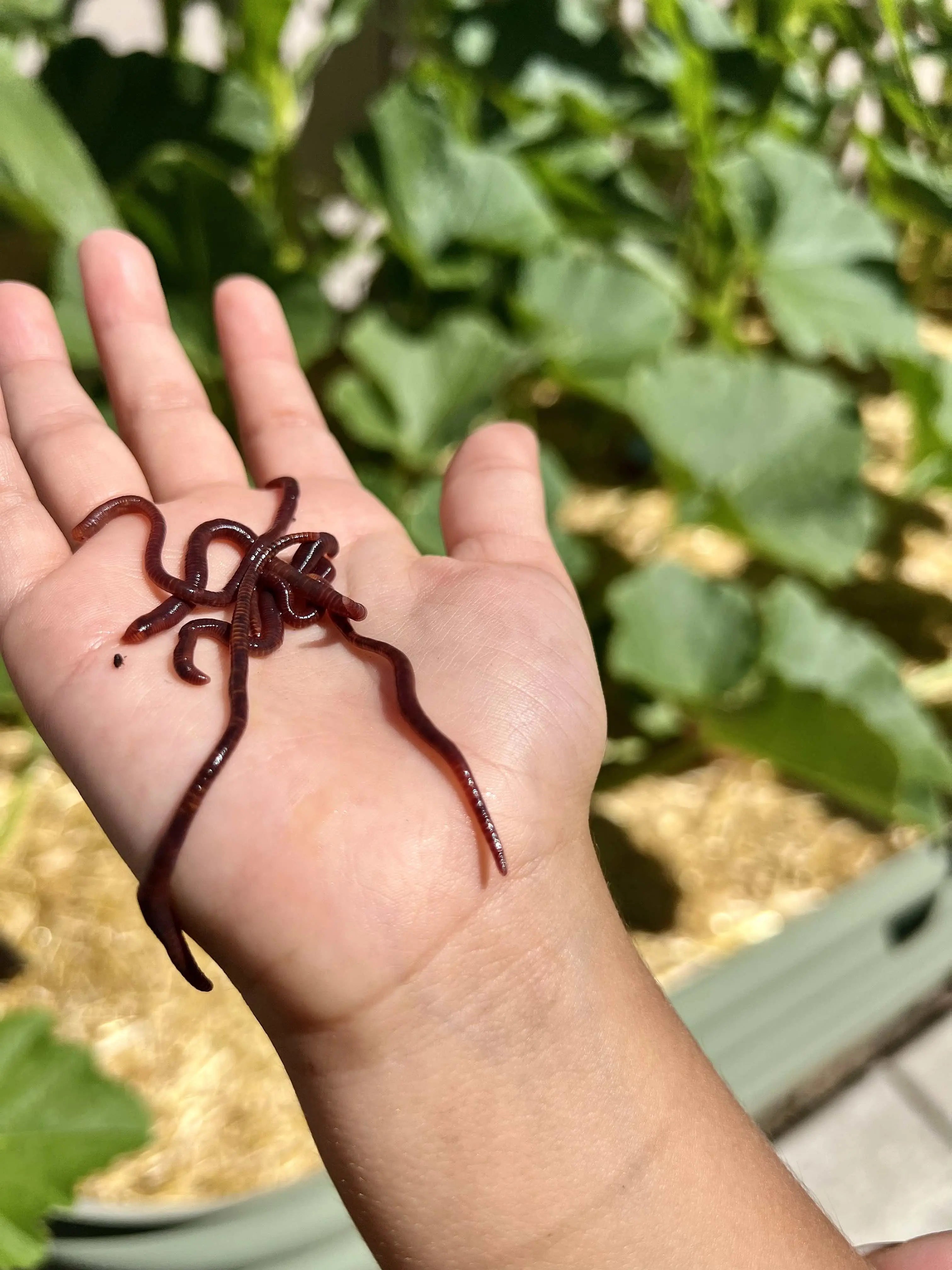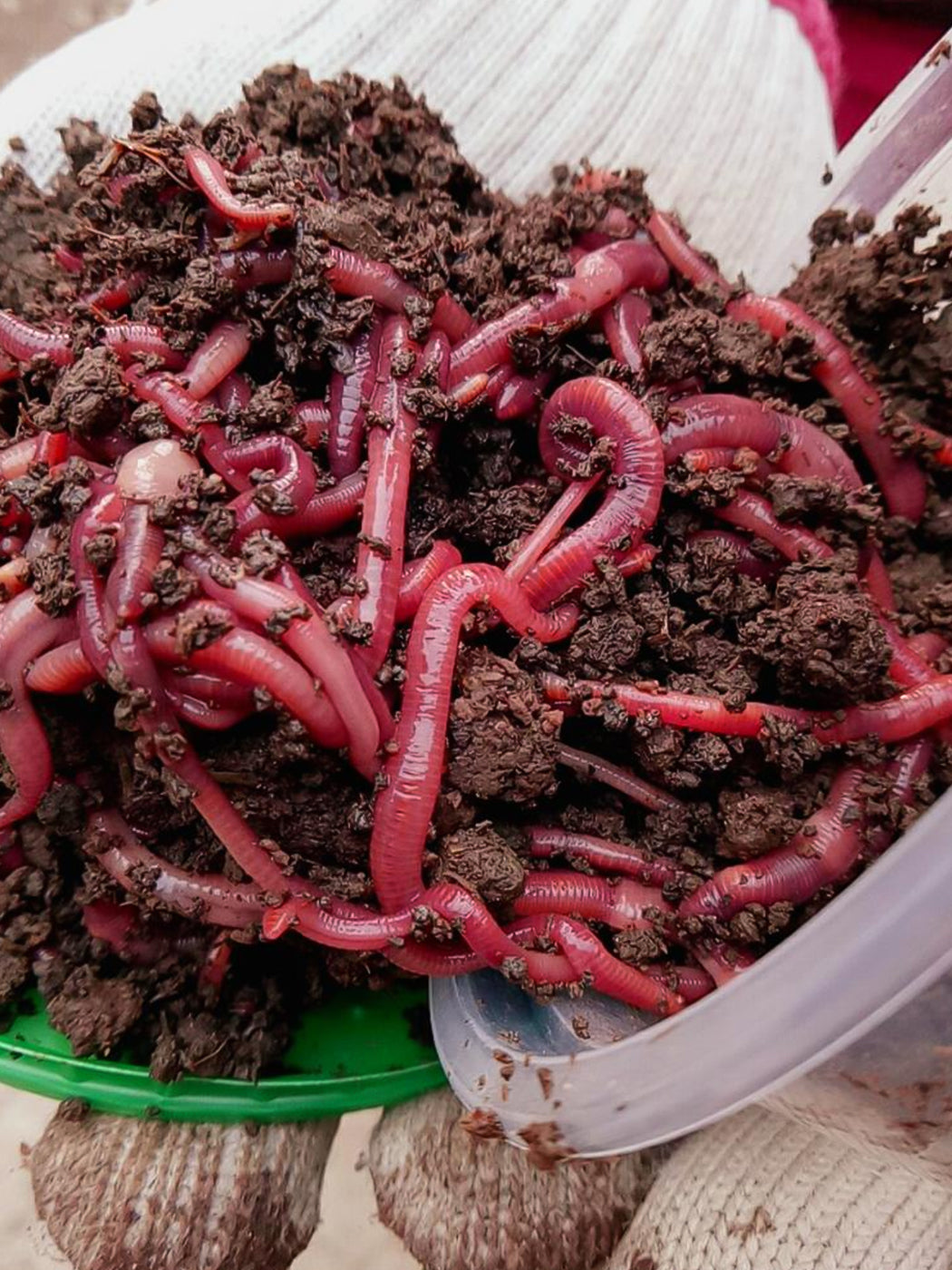Professional Lawn Care Help Powered by Lake Hickory Bait for Stunning Results
Professional Lawn Care Help Powered by Lake Hickory Bait for Stunning Results
Blog Article
The Unbelievable World of Red Wigglers: Boost Your Soil Fertility Today
These tiny yet effective microorganisms transform natural waste right into important worm castings, substantially improving dirt wellness and advertising lasting practices. As we discover the benefits of vermicomposting and the useful actions to produce an efficient worm bin, the prospective influence of these worms on your horticulture success becomes significantly noticeable.
Understanding Red Wigglers
Red wigglers, scientifically known as Eisenia fetida, are a species of earthworm that play an essential role in improving soil fertility. These worms thrive in organic-rich atmospheres, such as garden compost piles and decomposing plant material, where they consume natural waste and secrete nutrient-dense spreadings. Their special makeup, including a segmented body and a clitellum, permits them to replicate rapidly and successfully process huge amounts of raw material.

The environmental value of red wigglers expands beyond simple waste handling; they add to the soil food internet, promoting a diverse community of bacteria that additionally boost dirt health and wellness. Understanding the biology and actions of red wigglers is vital for using their complete potential in sustainable agriculture and horticulture methods.
Advantages of Vermicomposting
(Red Wiggler Express)Harnessing the power of red wigglers through vermicomposting deals many advantages that substantially enhance soil health and fertility. Among the key advantages is the production of nutrient-rich worm spreadings, which are a superb all-natural fertilizer. Red Wiggler Express. These castings consist of important nutrients like nitrogen, phosphorus, and potassium, advertising durable plant development and boosting crop returns
Furthermore, vermicomposting boosts dirt structure and oygenation. The presence of worm spreadings improves soil structure, enabling much better water retention and drainage. This balanced wetness degree is vital for root development and the general health and wellness of plants. Moreover, red wigglers help break down natural matter, speeding up decomposition and recycling nutrients back right into the soil.
Vermicomposting also fosters microbial task, which is essential for a healthy and balanced dirt environment. Beneficial microbes thrive in the visibility of worm spreadings, assisting in the malfunction of natural products and enhancing vitamins and mineral accessibility to plants.
Finally, vermicomposting acts as an efficient waste monitoring solution, minimizing landfill waste by reusing kitchen area scraps and various other natural products. This not just contributes to ecological sustainability but likewise promotes a circular economy within gardening and farming.
Exactly How to Set Up a Worm Container
Establishing up a worm bin is an uncomplicated procedure that can considerably enhance your composting initiatives. Begin by choosing an ideal container, which can vary from a readily available worm bin to a basic plastic or wood box (Red Wiggler Express). Make sure the container has adequate air flow; little openings in the lid and sides will facilitate air flow
Next, develop a bed linens layer to supply a comfortable atmosphere for the red wigglers. This can be made from shredded newspaper, cardboard, or coconut coir, dampened to a damp, sponge-like consistency. Load the container to around one-third complete with this bedding product.
As soon as the bed linens is prepared, it's time to introduce the worms. Red wigglers grow in organic waste, so place them gently onto the bed linen. Cover the worms with a light layer of added bed linens to help them accommodate.
Feeding Your Red Wigglers
Supplying the appropriate food for your red wigglers is crucial for their wellness and the effectiveness of your composting system. Red wigglers thrive on a different diet regimen, largely containing natural products such as fruit and veggie scraps, coffee grounds, and shredded paper. These materials not only give crucial nutrients but also add to the microbial task in the worm bin, which is vital for the worms' food digestion.
It is vital to stay clear of specific foods, such as milk products, oils, and meats, as these can draw in insects and produce undesirable smells. In addition, citrus peels and overly spicy foods ought to be restricted because of their potential to hurt the worms. A balanced strategy to feeding includes monitoring the quantity of food introduced to the container, ensuring that it is eaten within a reasonable period to stop excess waste buildup.
To advertise optimum digestion, it is valuable to slice or this content shred bigger food products before adding them to the bin. This technique boosts the surface area for microbial action, assisting in quicker disintegration and boosting the total effectiveness of your composting system. Frequently observing the worms' feeding practices will aid you adjust their diet as essential.
Making Use Of Worm Castings in Your Garden

(Lake Hickory Bait)Incorporating worm castings into your garden can be completed by mixing them into the dirt or using them as a leading dressing. The slow-release nature of these spreadings makes certain that nutrients are readily available to plants over a prolonged period, minimizing the need for synthetic plant foods. Furthermore, worm castings include useful microorganisms that advertise healthy and balanced soil ecological communities, improving the general durability of your yard.
To make best use of the benefits, goal to apply around one part worm spreadings to 3 components soil in your growing beds. Regular applications can cause improved plant returns and healthier plants, making worm spreadings a vital source for both newbie and knowledgeable gardeners alike. By using this all-natural modification, you can cultivate a flourishing yard while adding to lasting horticulture practices.
Verdict
In conclusion, red wigglers exhibit the essential function of vermicomposting in enhancing soil fertility. Their capacity to transform organic waste into nutrient-rich spreadings substantially enhances dirt framework and supports microbial variety. Developing a vermicomposting system not just promotes lasting gardening techniques but likewise contributes to ecological health. By leveraging the advantages of these impressive microorganisms, gardeners can cultivate a lot more efficient and resistant ecosystems, inevitably promoting an extra lasting approach to farming and horticulture.
Report this page